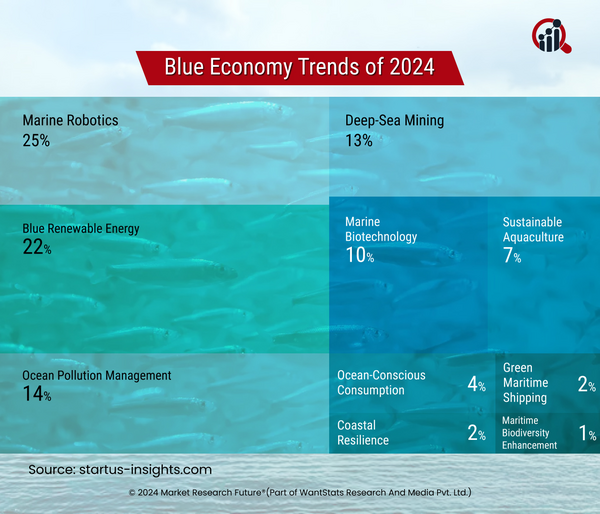Blue Economy Helps in Electricity Production in 2024
The clean energy transition gives rise to many sustainable solutions for developing a sustainable economy in 2024. Globally, nations emphasize the blue economy to improve the clean energy transition. The environmental transformation focuses on the shift from fossil fuels to renewables. Hence, the blue economy serves as an effective platform to accelerate fossil fuel production in 2024.
European Union's blue economy report 2024 focuses on developing coastal frameworks, marine infrastructure, and other technological innovations. The survey suggests balancing technology and consumers' sustainable habits for a blue economy. However, fossil fuel dependency may appear to be a hurdle. It can be easily overcome by the faster production of electricity from renewables. Hence, a blue economy is a better source of support for the growth of renewable energy production. It will ultimately lead to electricity generation to meet the consumer's demand. Among the top blue economy trends 2024, marine robotics creates 25 percent of impact, and blue renewable energy follows it with 22 percent. Marine robotics replaces humans in the adverse environment deep in the ocean water. It helps to study the sea surface and locates oil and gas resources. Marine robotics is used to maintain sustainable ocean development, too. Simultaneously, blue renewable energy provides advanced technologies for producing renewable energy from waves, tides, and ocean thermal energy. Therefore, it is an essential source of electricity production from renewables.
Offshore and tidal energy waves help produce electricity with wind farms near oceans. Hence, it will contribute significantly to renewable electricity production in 2024. by it expects to reach about 154 gigawatts by the end of 2024. Similarly, tidal and wave energy production is expected to be 1.1 gigawatts by the end of 2024. Both methods will lead to a reduction in carbon emissions. Moreover, wave energy claims to contribute 10 percent of global electricity in 2024. Hence, the blue economy contributes to electricity production simultaneously, conserving the sustainability of the ocean.






